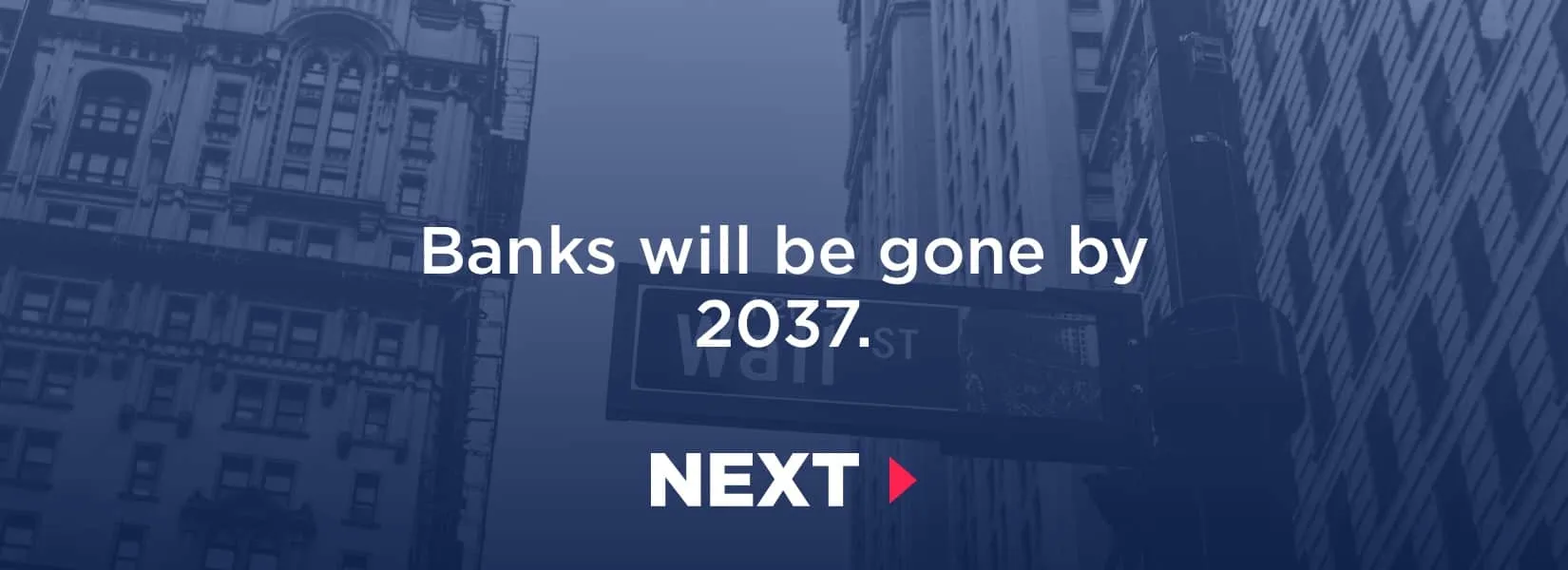Banking is one of the industries that’s going through a huge transformation in this decade. Thanks to technologies like blockchain , that is enabling this disruption to happen at a faster pace than we all anticipated.
Earlier, before the financial crisis, the banks were too self-serving, and focused on what they needed. But the revolution started happening right after the financial crisis, where banks realized that they could be extinct one fine day, if they are not adopting to what people need.
This change is now being enabled by technologies like Blockchain. No one saw Uber coming. The moment Uber launched, traditional cab operators went out of business, since Uber offered people an easy way to get a cab and was transparent about the cost, upfront. This created a sense of trust between the brand and the people.
The Uber movement for banking industry arrived two years back, when blockchain technology went mainstream. Here are some quick examples of how current technologies and use-cases can enable/threaten banks of today.
Peer-to-Peer lending
A technology like Blockchain allows people to lend to each other without the intervention of banks. Since blockchain is secure, cryptographically proven, online services are taking advantage of this technology to make transactions between two parties as smooth as it can get.
Matching lenders directly with the borrowers is already going mainstream. And banks are taking a huge hit because of this shift in technology. Since a large entity, bank, is not involved between lender and the borrower, the overheads are low, and the speed at which the transaction can happen is also super fast.
Low cost of operation
Since banks were involved, the users were paying a ‘premium’ to get things done. The exchange rates were controlled by the banks, and the transparency in mid-market exchange rates to the user was also lost along the way.
But with blockchain technologies, that is being used by some online services, the users now have direct access to the mid-market exchange rates. Eliminating the need for the bank in the middle.
This has revolutionized the way business and customers interact with the financial system of a country.
Transparency in banking records
Today’s economy is ruled by the banks. They are the ones who validate you as a person or business when you are sending money from one place to the other. The banks are now considered the trusted third-party during a transaction. But what if, there was a system that allowed us to own our own identify and create trust between two parties, without the intervention of banks.
That’s where a technology like distributed-ledger comes into play. The technology that’s currently at its peak of disruption, is blockchain. Blockchain’s distributed ledger technology is a tamper proof public record of every single transaction happening in the world without any kind of bank controlling it.
Again, this technology is controlled by the people and not by the banks. The tables have turned.
But there might be concerns about privacy here. The trick here, is that only the transaction that is made is stored in the ledger, and not other information about your account, like balance sheets.
Do we need banks?
The pace at which these technologies are operating, I believe that the necessity for us to make transactions through a bank might be long gone. People will be able to make transactions directly, without any intermediaries and this will be the next email.
The comparison is petty close to what email did to post-offices. Not everything goes through post office now. Unless banks are technology driven, and always staying on top of the new technologies that are disrupting their industry, it is going to be very difficult for them to survive.
It’s not like the banks are too slow to adopt a new technology. It’s just that our financial system is completely broken.
Confused? Talk to us. And we could help.
Talk to a blockchain expert
Subscribe to our newsletter
Get the latest updates from our team delivered directly to your inbox.
Related Posts
10 security measures you need to implement in your app NOW
Hacking in any amount isn't too much of a good thing. That's why it's important to protect your data as and when you can. Here are the top 10 ways in which you can beef up the security of your app.
AI's ROI grows with time. You just don't realize that yet. Let's call it ROA.
Artificial Intelligence is at the center of today's innovation. Thanks to the disruptive capabilities powered by scalable machines. Here is a quick guide to calculate the return on investment on Artificial Intelligence and the impact it can have on your business. Specifically for the Middle East markets.
Five use cases of Artificial Intelligence for the next decade
The market value of Artificial Intelligence is expected to reach $39 billion by the year 2025. Here are some of the use cases and industries that will be a part of this huge revolutoin. And how Skcript is taking the lead here!

